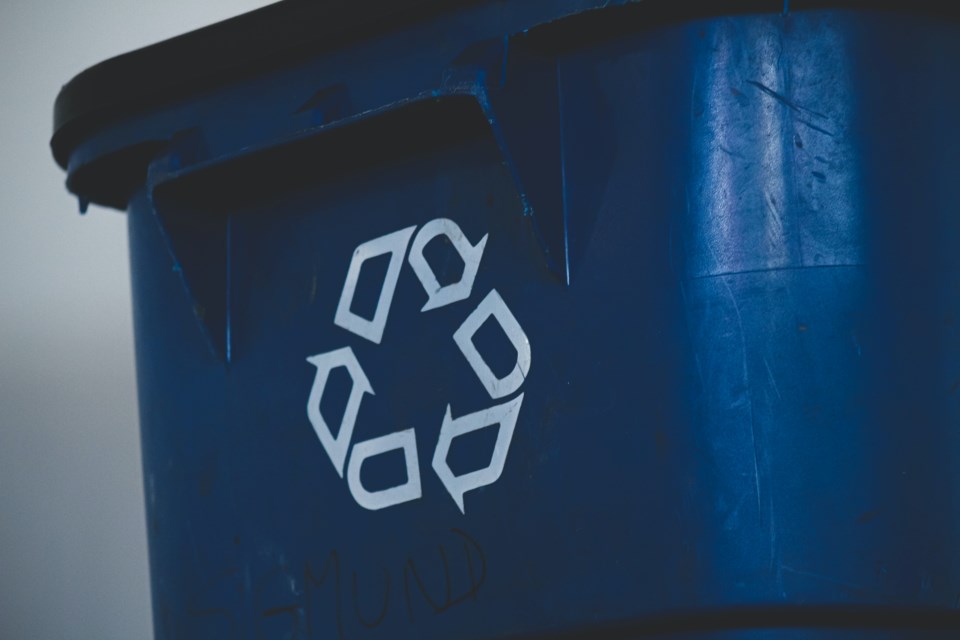Nearly a month has passed since a ban on harmful single-use plastics by Canada’s federal government, leaving businesses across the country to explore and implement planet-friendly alternatives.
A few local business owners in Cochrane recently shared their thoughts on the shift and their plans to make the change.
As of Dec. 20, the manufacture and import for sale of harmful single use plastics is prohibited. The ban applies to six categories of single use plastic items. It includes checkout bags, cutlery, foodservice ware made form hard-to-recycle plastics, stir sticks, straws, and will extend to plastic ring carriers this June.
In order to provide businesses with enough time to transition and deplete their existing stocks, regulations will be implemented through a phased approach. By the end of 2025, the Canadian federal government will prohibit the manufacture and import of all six categories of single-use plastics for the purposes of export.
Despite the ban taking effect very recently, Cochrane’s world-famous MacKay’s Ice Cream has already taken steps to address single use plastics. Owner and third-generation MacKay employee Megan Tayfel said their transition toward a plastic-free business model started nearly half a decade ago.
“We actually made it our mission about five years ago to start to switch over,” Tayfel said. “And our goal was to really look at waste diversion.”
From polylactic acid (PLA) compostable cutlery, compostable smoothie cups, paper dishes, and even compostable bags for customers to take home their pints, Tayfel said Mackay’s has already taken the steps.
“For us, starting the transition a few years back has been a lot easier because we are already able to source the suppliers,” she said.
As a local business that already started phasing out single-use plastics, Tayfel said she anticipates it may financially impact businesses.
“I think what’s going to happen and what we have seen is that it’s simply going to cost businesses a lot more money,” she said. “We want to be environmentally friendly, absolutely, but those products are extremely expensive.
“So, for small businesses in particular, that’s going to be a huge hit.”
For local business that have not started the shift or are starting to phase out single-use plastics now that it is required, Tayfel said looking for the right product for your business is an important first step.
“Find out what is going to work best for your business and definitely look around, because there’s always different suppliers out there that can help you with your business needs,” she said.
On a critical note, Tayfel said the ban does not consider many perspectives and it can potentially impact everyone.
“I don’t think the federal government looked at the impact not only to business, but to those producers of single use plastics now having to shift away,” Tayfel said. “It’s a massive industry and it’s going to affect everybody [at] sometime.”
Since each business each has their own specific needs, there’s no shortage for alternative perspectives on the topic. Robert Forsyth from Rocky View Brewing Co.’s taproom said their business already uses a minimal amount of single use plastics.
“We don’t use any single-use plastics other than small sauce containers for takeout. Other than that, everything is tableside, glass bottles, and that reusable type of thing,” Forsyth said.
For the owner of The Community Food Co., Mona McArthur, although she has to phase out the plastic straws in the restaurant and the plastic cutlery for takeout, she feels like it is enough time to shift over to alternatives.
“I think they’re coming out with alternative measures for us and we’re just keeping an eye on where the market is going with that and what will be available to us,” she said.
Although she does not have a concrete plan in place, McArthur is not too concerned with the shift away from single-use plastics and doesn’t see the transition as a big issure.
“I think people will get used to having to come up with their own ideas for cutlery and straws will probably be replaced,” she noted.
In terms of the decision to ban plastics to help preserve the environment, McArthur agrees with the ban.
“I think it’s an important step in protecting the environment, for sure,” MacArthur said. “I just see the waste and the manufacturing of plastics, [and] the pressure it puts on our landfill and the effect it has on our ecosystem.”




